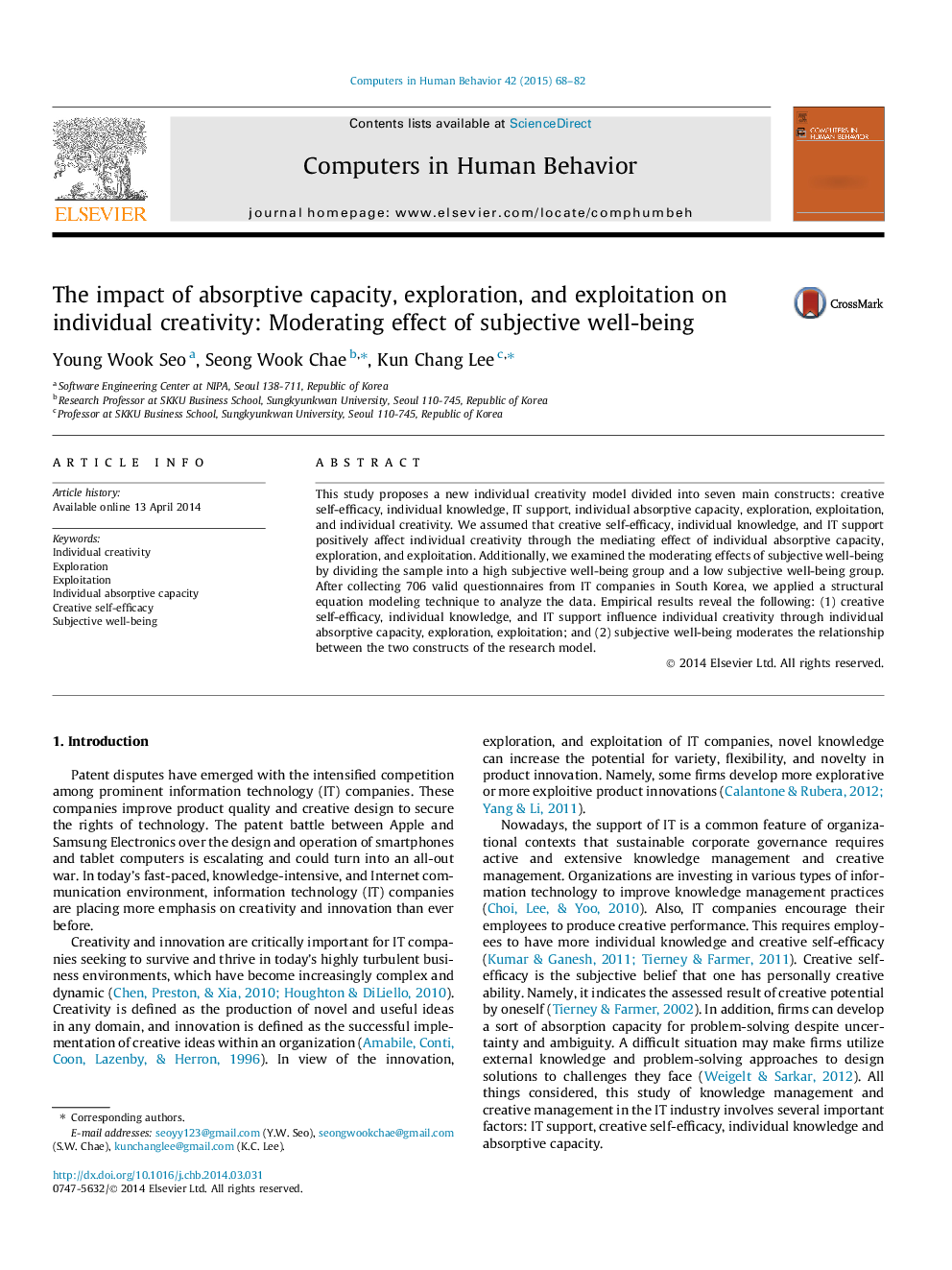| کد مقاله | کد نشریه | سال انتشار | مقاله انگلیسی | نسخه تمام متن |
|---|---|---|---|---|
| 350281 | 618441 | 2015 | 15 صفحه PDF | دانلود رایگان |
• Creative self-efficacy and individual knowledge influence absorptive capacity.
• Absorptive capacity, exploration, and exploitation influence individual creativity.
• We examined the moderating effects of subjective well-being (SWB).
• IT support has a greater effect on absorptive capacity in high SWB than low SWB.
• Absorptive capacity has a greater effect on creativity in high SWB than low SWB.
This study proposes a new individual creativity model divided into seven main constructs: creative self-efficacy, individual knowledge, IT support, individual absorptive capacity, exploration, exploitation, and individual creativity. We assumed that creative self-efficacy, individual knowledge, and IT support positively affect individual creativity through the mediating effect of individual absorptive capacity, exploration, and exploitation. Additionally, we examined the moderating effects of subjective well-being by dividing the sample into a high subjective well-being group and a low subjective well-being group. After collecting 706 valid questionnaires from IT companies in South Korea, we applied a structural equation modeling technique to analyze the data. Empirical results reveal the following: (1) creative self-efficacy, individual knowledge, and IT support influence individual creativity through individual absorptive capacity, exploration, exploitation; and (2) subjective well-being moderates the relationship between the two constructs of the research model.
Journal: Computers in Human Behavior - Volume 42, January 2015, Pages 68–82
